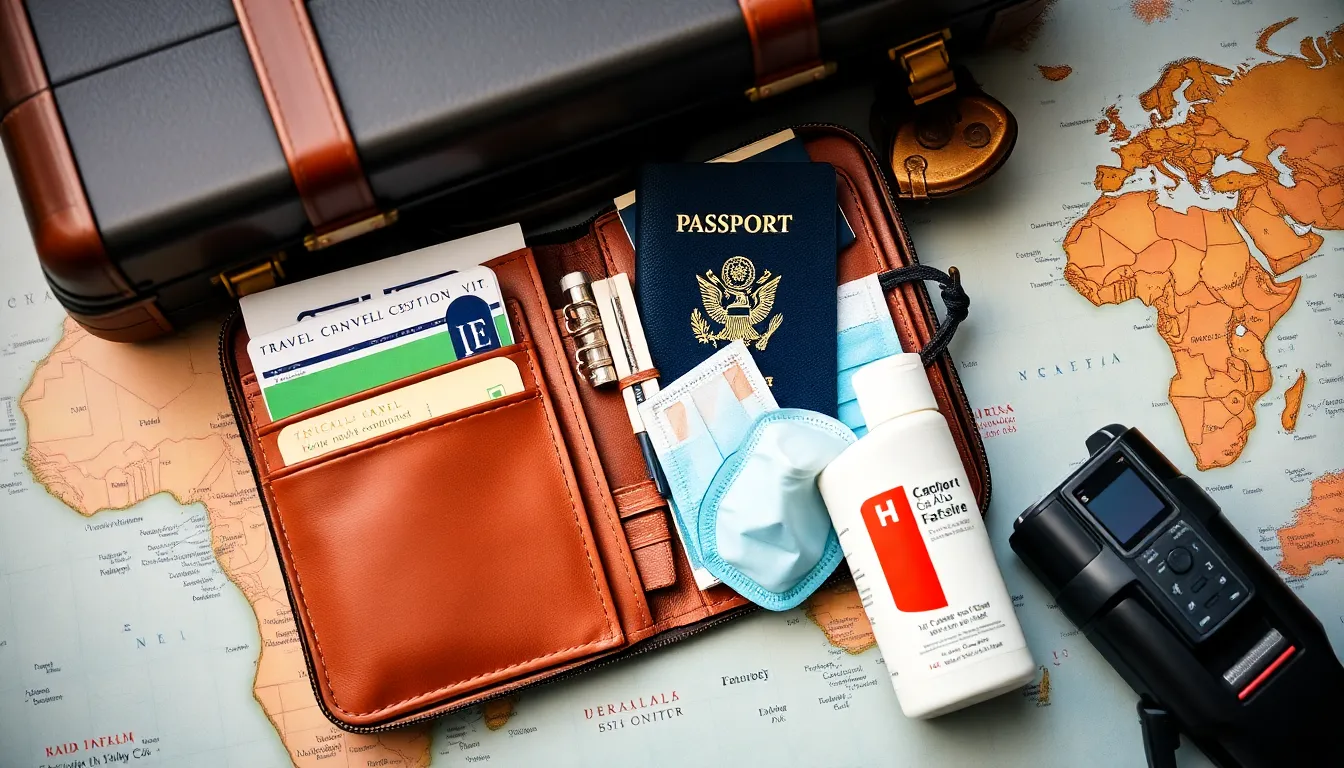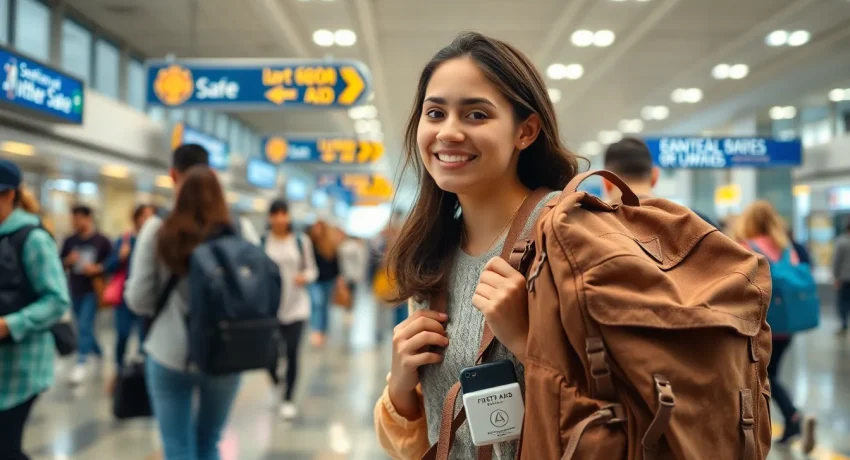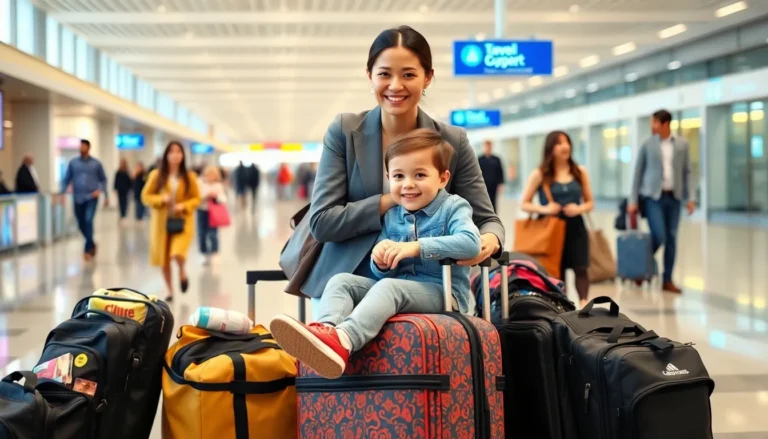Table of Contents
ToggleTraveling can be a thrilling adventure, but it often comes with its own set of challenges. From lost luggage to unexpected delays, the last thing anyone wants is to be unprepared. That’s where safe travel essentials come into play. They’re like the superhero sidekick of your journey, ready to swoop in and save the day when things go awry.
Importance Of Safe Travel Essentials
Safe travel essentials ensure travelers maintain their wellbeing and security. These items reduce stress and enhance readiness for unforeseen events. Safety equipment and supplies become invaluable when dealing with lost luggage and unexpected delays. Travelers benefit from packing items such as first aid kits, portable chargers, and important documents.
Emergency tools, like whistles and flashlights, add an extra layer of security. Health-related items, including masks and sanitizers, protect against illnesses and contribute to overall safety. Having these essentials on hand helps travelers feel secure and prepared.
Travelers can avoid many complications by prioritizing safe travel essentials before embarking on their trips. Packing duplicates of essential documents, such as passports and itineraries, ensures easy access in emergencies. Access to communication devices reduces isolation, especially in remote locations.
Safety isn’t only about individual items but also about being informed. Awareness of local emergency numbers and healthcare facilities proves crucial. Enhancing travel knowledge through research builds confidence and supports better decision-making during journeys.
Overall, proper preparation through safe travel essentials encourages a positive, worry-free travel experience. Prioritizing safety keeps travelers focused on their adventures rather than difficulties that may arise.
Packing The Right Gear

Packing the right gear ensures a smooth travel experience. Prioritizing essential items contributes significantly to comfort and security.
Travel Documents
Travel documents play a critical role during trips. Carry passports, visas, and identification cards for international journeys. Copies of these documents stored digitally and physically offer extra protection. Travel insurance documents should also come along for emergencies. Access to vaccination records can speed up entry requirements. Keep all essential documents organized in a travel wallet for easy access.
Health And Safety Kits
Health and safety kits are vital for any traveler. First aid supplies like band-aids, antiseptic wipes, and pain relievers address minor injuries quickly. Masks and hand sanitizers reduce the risk of illness exposure. Include prescription medications and a list of allergies in the kit for unexpected needs. Flashlights provide illumination during power outages or emergencies. Keep the health and safety kit compact and easily accessible throughout the journey.
Choosing The Right Accommodations
Selecting suitable accommodations enhances overall travel safety and comfort. Travelers benefit from understanding specific hygiene standards and evaluating location safety before booking.
Hygiene Standards
Health safety remains a priority when choosing a place to stay. Accommodations adhering to strict hygiene protocols significantly reduce the risk of illness. Travelers should look for properties with cleanliness certifications. Frequent sanitation of high-touch areas and proper ventilation are non-negotiable. Reading recent reviews helps identify establishments that prioritize guest health. Ultimately, locating accommodations that provide hygiene kits or offer cleaning options during the stay can enhance overall safety.
Location Safety
Safety in the surrounding area directly impacts travel experiences. Researching neighborhoods ahead of time reveals potential safety concerns. Staying in well-lit, populated areas generally increases security. Proximity to emergency services and healthcare facilities offers peace of mind. Consulting travel advisories provides updated information about local risks. Furthermore, evaluating the accessibility of transportation options ensures safer travel within the destination. Prioritizing accommodations in secure locations contributes to a worry-free trip.
Staying Connected While Traveling
Staying connected during travel enhances safety and communication. Access to reliable resources is crucial for addressing unexpected situations.
Mobile Apps For Safety
Travelers can benefit from various mobile apps designed for safety. Apps like Google Maps offer navigation and real-time location sharing, which assists in staying on track. Emergency services apps provide quick access to local assistance, making it easier to call for help if necessary. Health-related apps, including those that display nearby hospitals, aid in managing medical concerns. Additionally, language translation apps facilitate communication in unfamiliar areas. Using these tools ensures travelers remain informed and connected throughout their journeys.
Emergency Contacts
Maintaining a list of emergency contacts is vital for safety while traveling. Family members should be included, ensuring loved ones can be reached if needed. Local emergency services numbers are critical, providing immediate assistance during crises. Hotel contacts also play an essential role, allowing for quick help and information about nearby resources. Keeping this information accessible, either digitally or in physical form, contributes to preparedness. Travelers can relax knowing they can reach the right people quickly in case of emergencies.
Maintaining Personal Safety
Travelers must prioritize personal safety to navigate their journeys confidently. Utilizing key strategies ensures a focus on security and awareness while exploring new environments.
Situational Awareness
Awareness of surroundings plays a vital role in maintaining safety. Observing local behavior and noting the layout of neighborhoods can help travelers react quickly to any changes. Assessing the presence of others nearby allows them to identify potential threats. In unfamiliar areas, minimizing distractions from electronic devices aids in staying alert. Engaging with locals can provide insights into safe practices and areas to avoid. Individuals should also be vigilant when using public transportation and keep personal belongings secure. Establishing an emergency exit plan enhances readiness for unforeseen situations.
Avoiding Common Scams
Travelers encounter various scams in unfamiliar locations. Recognizing prevalent scams, such as currency exchange tricks or unauthorized tour guides, helps minimize risks. Choosing reputable services based on reviews or recommendations ensures safer experiences. Queries about prices should be directed to official sources to avoid unexpected charges. Not displaying valuables in public, such as shiny jewelry or high-end gadgets, reduces the risk of attracting unwanted attention. When approached by strangers offering unsolicited help, polite disinterest is often the safest response. Keeping a copy of important documents assists in resolving issues without falling victim to scams.
Traveling can be an incredible adventure when approached with the right mindset and preparation. By prioritizing safe travel essentials, travelers can navigate unexpected challenges with confidence. Packing health and safety kits, crucial documents, and reliable communication tools ensures a smoother journey.
Choosing accommodations that prioritize hygiene and safety further enhances peace of mind. Staying aware of surroundings and engaging with locals can also provide valuable insights for a secure experience.
Ultimately, being proactive about safety not only reduces stress but also allows travelers to fully embrace the joy of exploration. With the right preparations in place, every trip can become a memorable and safe adventure.




